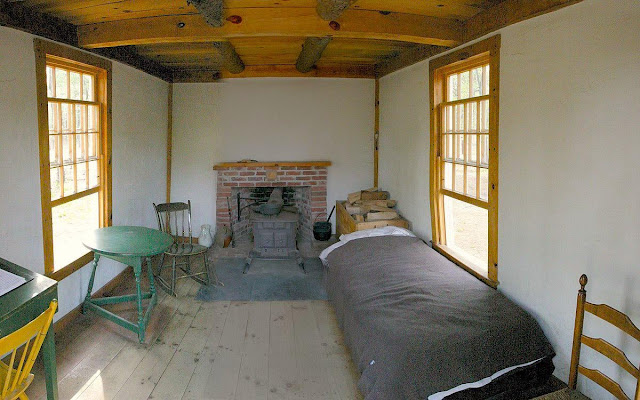Replica of Walden home
He bought wood from the Irish shanties as they moved on to work on the railroad. He seemed to love all kinds, the Native Americans, the escaped slaves. He wrote about helping one escaped slave, in his journal, which would have been incriminating evidence if he journal was ever seized for a court case.
There is something large in spirit, in his insistence to walk, to remain mostly local, to oppose injustice, to wish to be free.
When he went to Cape Cod the first time there was a shipwreck, a hunger ship of starving Irish people whos boat smashed and most of them died. It was a horrible spectacle and wasn't exactly what he expected. A few years later visiting the exact same spot, everything was gone. He would soon go to Fire Island to see if he could find anything of Margaret Fuller, and he only came back with a button. Her book on Rome was lost, her future as a suffragette, and her baby and husband, all died as the bound foundered on a sandbar 300 feet from the shore.
Thoreau was outraged when an employer took the $4 prize from a laborer who won a spading contest. He raised $50 to get Michael Flannery's wife and children to America from Ireland. They got there safely and stayed with the Thoreaus until they were settled. And he wasn't rich like Emmerson who was quite generous with Thoreau.

No comments:
Post a Comment